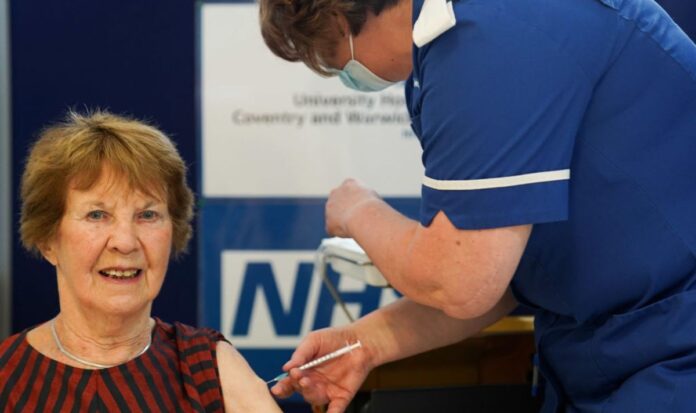A new and rampant variant of coronavirus is spreading in the UK, it has been confirmed, but the strain itself is “not likely to make people seriously ill”. The UK Health Security Agency (UKHSA) published its findings on Friday (September 22), which contained updated analysis of the BA.2.86 variant, also known as the Pirola strain. The agency said the virus is “continuing to transmit” within Britain, with “sporadic” cases being identified in most regions. With winter just around the corner, and temperatures starting to dip, the UKHSA has said the spread is expected to continue as people spend more time indoors. In a statement, the UKHSA said: “These early data indicate that BA.2.86 is no more likely to evade existing antibodies than XBB.1.5, another variant which has been circulating widely in the UK. While the available data remains limited, there is currently no evidence to suggest that BA.2.86 infection is more likely to make people seriously ill than currently-circulating variants, while vaccination is likely to provide continued protection.” Vulnerable people and adults over 65 have been offered their winter booster jabs early (Image: Getty) A Covid booster vaccination programme has since been rolled out earlier this month, earlier than expected, in a bid to protect vulnerable members of society from the disease. Residents in care homes, adults aged 65 and over, frontline workers and individuals living in the same household as those with immunosuppression are being prioritised before it is offered more widely later this season. While the new variant is so far presenting no issues in regards to the vaccine, the UKHSA said it will continue to inspect how well it shields people from becoming seriously ill over the course of the winter. Professor Susan Hopkins, the chief medical advisor for the UKHSA said: “While this is still very early data and more research is needed before we can be certain, it is encouraging to see an initial indication that BA.2.86 demonstrates similar levels of antibody escape compared to other variants circulating in the UK. “The available data is too limited to draw conclusions about the severity of the illness it causes , but there is so far no evidence to suggest that it is more likely to make people seriously ill than other Omicron variants in circulation. ‘The autumn vaccination programme started this month, and this new data shows once again how important it is that the most vulnerable among us are fully vaccinated in order to receive the greatest possible protection. I urge everyone eligible to come forward for their next dose as soon as they are called.’ When did the new Pirola strain start spreading? BA.2.86, or Pirola as it is known, was first identified in August and, as of September 18, 137 cases have been found 15 countries including Australia, Canada, Denmark, France, Germany, Israel, Japan, Portugal, South Africa, South Korea, Spain, Sweden, Switzerland, the UK, and the USA. During this same time-frame, 54 cases have been confirmed in the UK – with 48 in England and six in Scotland. However, none have been found in Wales or Northern Ireland. Of the 48 cases in England, 30 emerged from an outbreak in a care home, the UKHSA said. This care home was in the east of England. The other 18 were picked up via routine genomic surveillance, the standard method used by scientists to track a disease’s progression. Out of the 48 cases, 10 individuals needed hospital treatment and another two were tested in an emergency department. A further six cases are known to have been escalated to hospital, but their current condition is not known. So far, there have been no known deaths due to Covid-19 among the cases outlined. The UKHSA added: “As we head into the winter months when case rates are expected to rise as people mix more indoors, it remains vital that people continue to follow the latest guidance in order to avoid catching and transmitting COVID-19. “The advice remains unchanged; if you have any symptoms of respiratory infection, you should limit your contact with other people as much as possible, especially the elderly and those with existing medical conditions.


